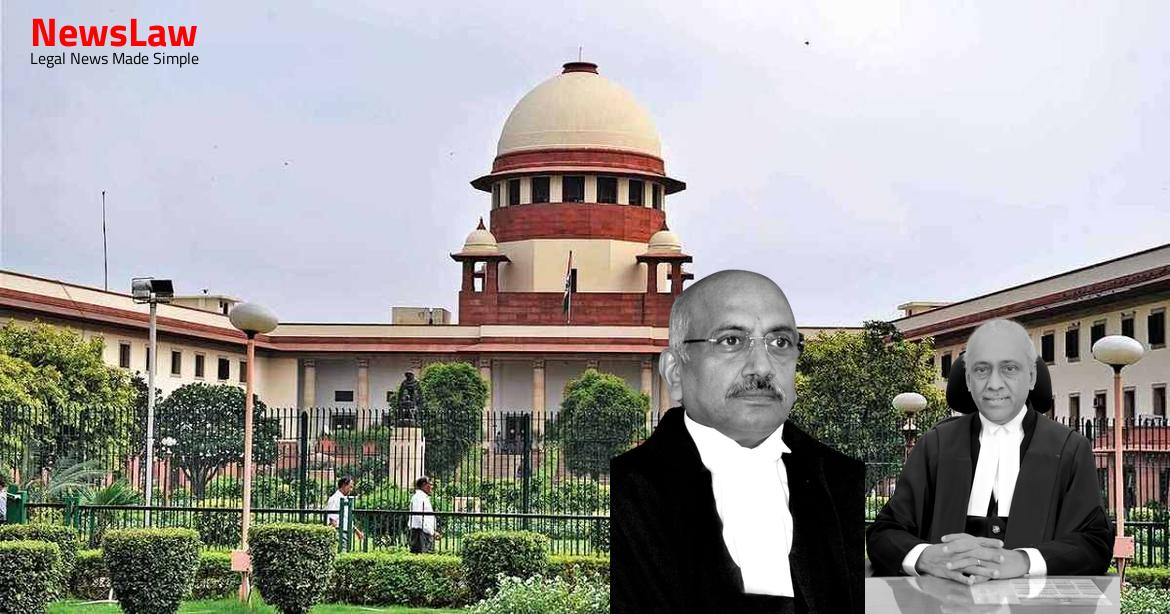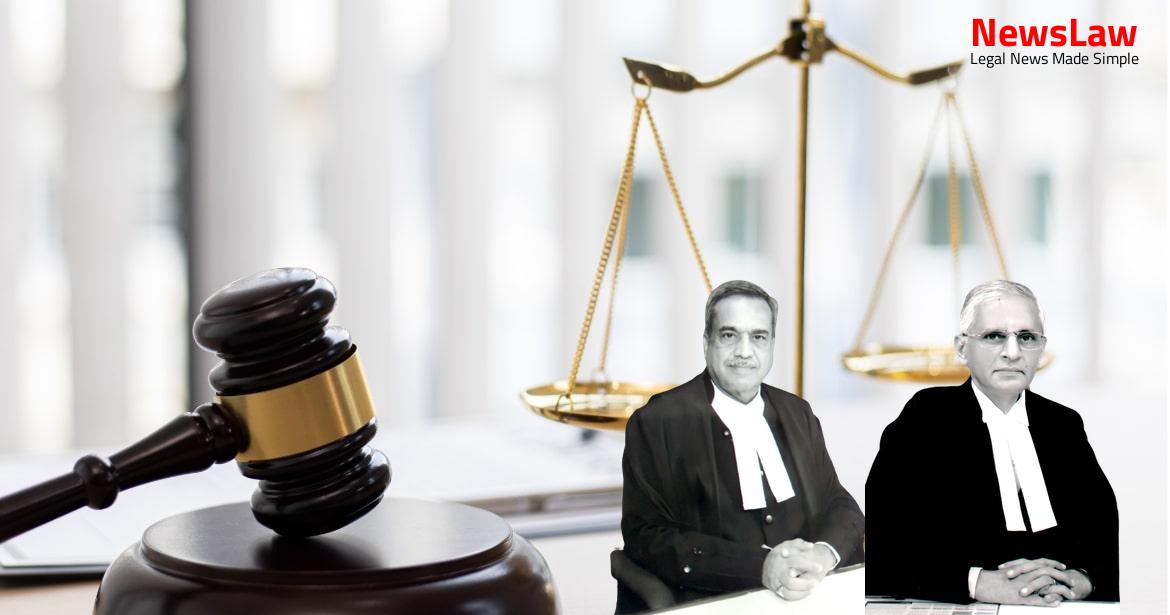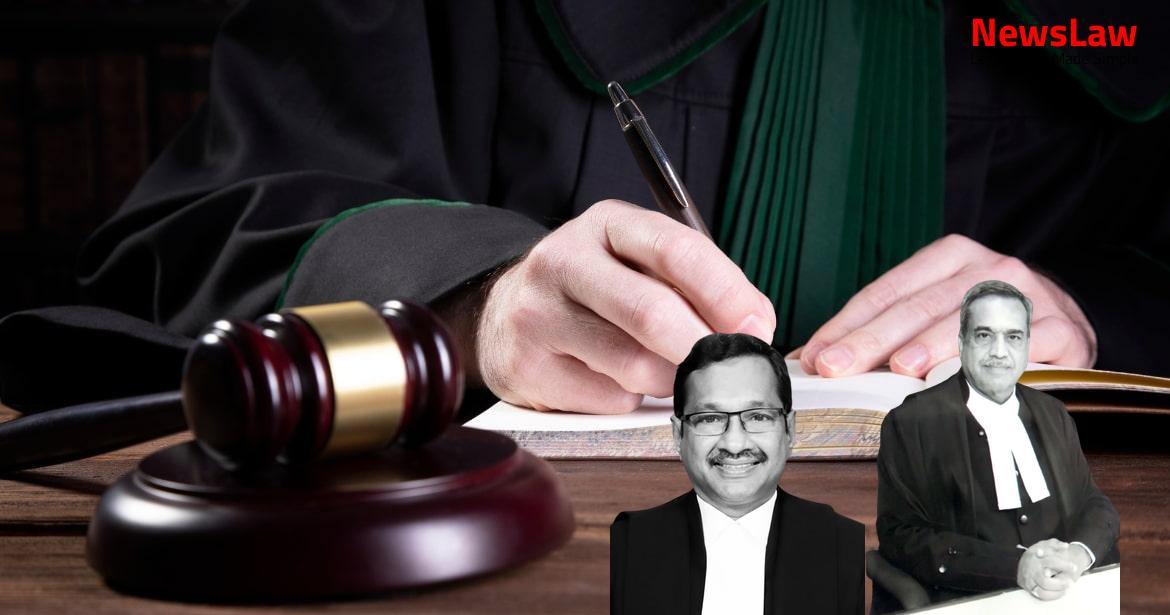Delve into the intricate legal analysis of a recent case where the High Court scrutinized the compliance with Rules governing the constitution of Inquiry Committees. Discover the importance of adherence to procedural norms in disciplinary proceedings and the application of the doctrine of necessity. Stay tuned for insights into the court’s evaluation of the Inquiry Committee’s composition and its impact on the disciplinary action taken.
Facts
- Respondent No. 1 was removed from the post of Principal of the Institute of Pharmacy but challenged this decision before the School Tribunal.
- Disciplinary proceedings were initiated in 2004 based on serious allegations.
- Show cause notice was issued enclosing the Inquiry Report and respondent No. 1 was penalized with removal from service on 19.08.2004.
- Respondent No. 1 was appointed as Principal in 1991 and given a fair hearing during the Departmental Inquiry where 7 out of 10 charges were proved.
- The appellant is an Educational Society registered under the Bombay Public Trusts Act.
- The High Court dismissed the writ petition filed by the appellant-Management.
- The division bench also dismissed the intra-court appeal filed by the appellant-Management.
- The appeal before the court raised issues regarding the inquiry conducted by the Management.
- The Tribunal found that the constitution and composition of the Inquiry Committee did not comply with the Rules.
- The Tribunal allowed the appeal primarily on the ground of non-compliance with Rule 36(2)(b) of the MEPS Rules.
- The appellant-Management then filed a writ petition in the High Court of Judicature at Bombay, Aurangabad Bench.
Also Read: Undisclosed Conviction for Dharna Under Police Act Leads to Overturned Election
Issue
- The School Tribunal identified five issues for consideration.
- The first issue was whether the Inquiry Committee formed by the Management for further inquiry against the employee was legal and permissible.
- The second issue concerned the non-payment of subsistence allowance by the Management and whether it affected the validity of the inquiry.
Also Read: Critical Analysis of Legal Principles in a High-Profile Criminal Case
Analysis
- The Chief Executive Officer or President communicates the allegations to the employee or Head by registered post and demands a written explanation within seven days.
- If the explanation provided is not satisfactory, an inquiry may be conducted.
- Rule 36 of the MEPS Rules outlines the constitution of the Inquiry Committee for employees found guilty of specified grounds.
- The Inquiry Committee composition varies based on whether the inquiry is against an employee or the Head of the school.
- The definition of ‘Chief Executive Officer’ and ‘Head’ in the Rules is provided to understand the roles within the disciplinary process.
- 1.1
- 2.1
- 3.1
- 4.1
- 5.1
- 6.1
- Parliament does not legislate unnecessarily or use any word without meaning.
- Legislation is only called for when needed.
- Providing a separate Inquiry Committee for the Head in Rule 36(2)(b) would be considered nugatory.
- The Legislature does not use any word unnecessarily.
- Parliament is not expected to use unnecessary expressions or express itself unnecessarily.
- Parliament cannot be assumed to legislate for the sake of legislation or make pointless legislation.
- Parliament does not indulge in legislation merely to state what is unnecessary or to do what is already validly done.
- The High Court failed to consider the doctrine of necessity in the impugned order.
- The disciplinary proceedings began with the President’s participation in the Inquiry Committee, but he was later replaced due to ill health.
- In such a situation, the doctrine of necessity should have been applied by the High Court.
- The School Tribunal rejected other contentions of respondent No.1 except the one related to Rule 36(2)(b).
- Based on the upheld contention, the penalty of removal from service imposed on the first respondent is deemed valid.
Also Read: Interpretation of Stamp Duty Provisions
Decision
- Appeal allowed on specified terms
- No order as to costs
- No recovery of monetary benefit granted by any interim order to respondent No.1
Case Title: JAI BHAVANI SHIKSHAN PRASARAK MANDAL Vs. RAMESH . (2022 INSC 358)
Case Number: C.A. No.-007937-007937 / 2011



